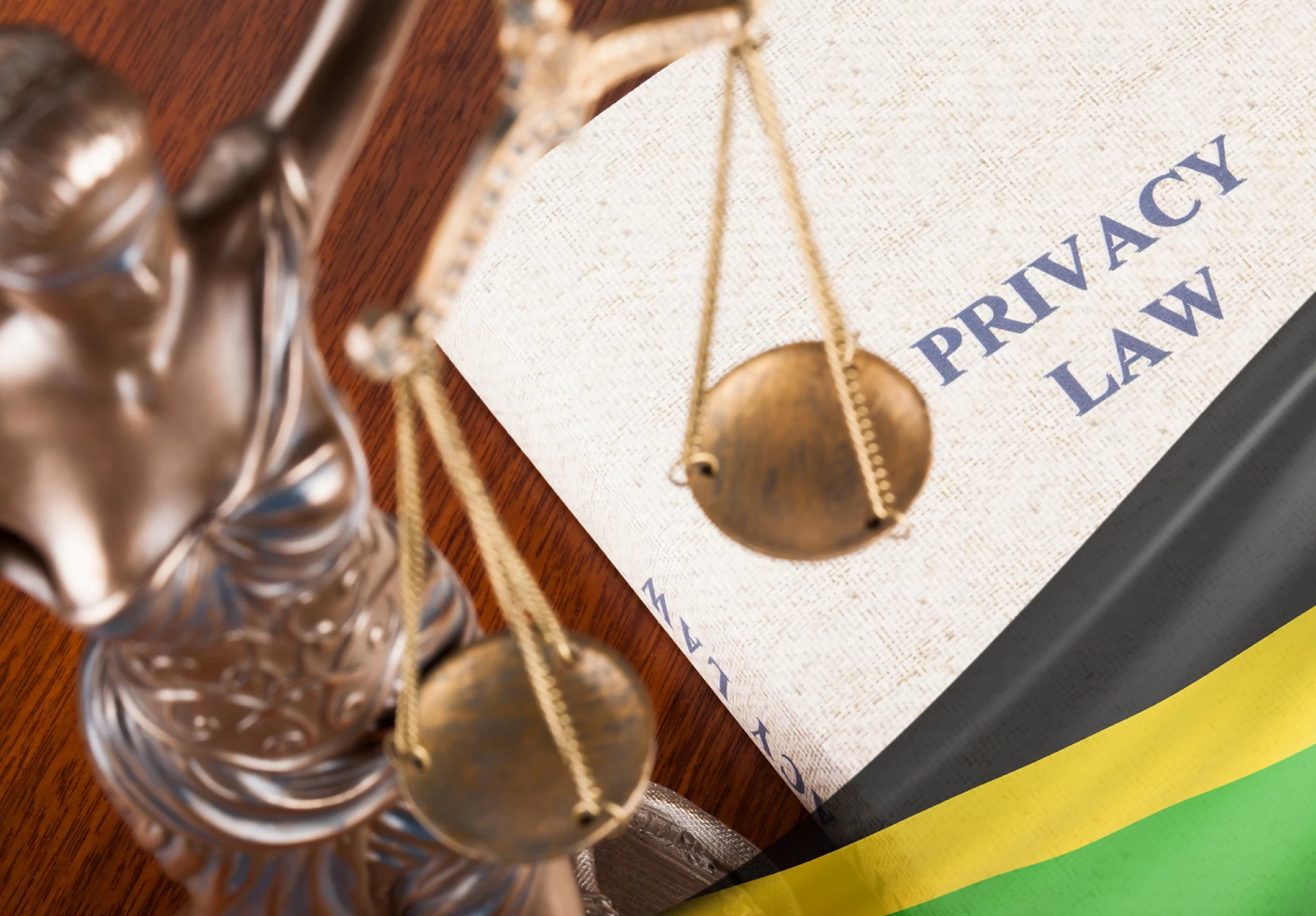Responsibilities of a Data Controller
Data Controllers as the master chefs of the data world. They are the key decision-makers on how data is utilized and processed and for what underlying reasons; but, with this culinary command comes significant responsibility.
Much like chefs adhere to strict health and safety regulations, Data Controllers must ensure compliance with the Jamaica Data Protection Act. The law expects them to adopt measures to ensure compliance or risk running afoul of the law.
The Jamaica Data Protection Act provides a framework outlining the responsibilities and obligations of Data Controllers. They are crucially responsible for protecting the rights, freedoms and ultimately the safety of individuals through the responsible use and protection of data about these individuals. In other words, Controllers are tasked with “protecting data about individuals in order to protect the individuals who the data is about”. A breach or negligence on the part of Controllers can have serious consequences, rendering them liable as per the Act.
The Jamaica Data Protection Act mandates Data Controllers to maintain updated record of processing activities undertaken under their authority, thus squarely placing the onus of proving compliance. In fact, these responsibilities can be seen as a three-fold mission: Upholding Data Protection Standards, respecting the Rights of Data Subjects and proving ongoing compliance through registration with The Office of the Information Commissioner.
1. Upholding Data Protection Standards
The iconic Marvel superhero Spider-Man has long been admired for living by the mantra, "With great power comes great responsibility." On the surface, Data Controllers might seem far removed from this web-slinging superhero. They may not have the dramatic costume, mask, or ability to scale skyscrapers, but they are tasked with handling one of today's most powerful assets - data.
Data Controllers are bound by a codified set of rules that guide their data management activities. The Act insists on adherence to standards of data protection – lawfulness, fairness and transparency; purpose limitation; data minimization; accuracy; storage limitation; confidentiality, integrity, availability and accountability; and responsible sharing and transfer.
Lawfulness, Fairness, and Transparency: This principle requires that personal data be processed lawfully, fairly, and in a transparent manner. Data Controllers must have legitimate grounds for collecting and using personal data and should not do so in ways that have unjustified adverse effects on the individuals concerned. They must be transparent about how they intend to use the data and communicate this information to the data subject.
Purpose Limitation: The Act stipulates that data should only be collected for legitimate purposes that are clearly stated beforehand. The way the data is collected and processed should be explicitly specified, and the data collected should not be used for any unrelated purpose unless consent is obtained from the data subject or there are other lawful reasons for doing so.
Data Minimization: This standard is about striking a delicate balance. Data Controllers are bound to use only adequate, relevant, and necessary data to fulfil their objectives. Anything else is surplus to what is needed.
Accuracy: Controllers are entrusted with ensuring data is current and accurate. Any inaccuracies in the data once identified must be rectified.
Storage Limitation: The Data Controller should not retain personal data for longer than is necessary. However, the Act provides exceptions when the data is being processed for statistical, scientific, or historical purposes that serve the public interest. In these cases, organizations must adopt appropriate measures to protect individuals' rights.
Implementing Technical and Organizational Measures: Lastly, Data Controllers must implement appropriate technical and organizational measures to safeguard personal data against unauthorized access, accidental loss, or destruction. These obligations are not merely bureaucratic hurdles but rather essential measures to ensure data security and maintain public trust.
They are required to establish robust security policies and procedures, undertake regular monitoring and audits of data processing activities, and carry out risk assessments to identify potential threats. They are also tasked with developing comprehensive incident response plans to tackle data breaches effectively and conduct adequate training for employees involved in data processing. In the event of third-party vendor involvement, Data Controllers must also ensure these entities uphold stringent data protection standards. As author William Gibson rightly said, "The future is here — it's just not very evenly distributed." This emphasizes that as we increasingly rely on digital solutions, robust data protection frameworks become imperative.
Transfer: Data Controllers should not transfer data to a State or territory outside of Jamaica unless that State or territory ensures an adequate level of protection to the rights and freedoms of data subjects in relation to the processing of personal data. In making such transfer consideration must be given to the nature of the data, the origin of the data, the purpose and period during which the data will be processed and the laws and international obligations of the State or territory. Consideration should also be given to any code of conduct which is enforceable and security measures taken to protect personal data.
Notwithstanding, there are exceptions where other lawful basis (such as contract, consent, national security, etc.) for transfer exists.
2. Ensuring the Rights of the Data Subjects
Data subjects means a named or otherwise identifiable individual who is the subject of personal data, and in determining whether an individual is identifiable account shall be taken of all means used or reasonably likely to be used by the data controller or any other person to identify the individual, such as reference to an identification number or other identifying characteristics (whether physical, social or otherwise) which are reasonably likely to lead to the identification of the individual. Categories of data subjects include employees, customers, students, patients, guests, to name a few.
Data Controllers, under the Jamaica Data Protection Act, are not just entrusted with protecting data for safeguarding their business but also safeguarding the rights of data subjects. In essence, organizations must protect personal data to protect the rights and freedoms of the person who the data is about (data subject). The Act stipulates six rights (the right of access, the right to prevent processing, the right to consent/withdrawal, rights concerning direct marketing, rights related to automated decision-making, and the right to rectification) to which data subjects are entitled.
Data Controllers, therefore, have an obligation to apprise data subjects of their freedom to exercise these rights. And by ensuring these rights, they not only comply with the law but also build a relationship of trust and transparency with the data subjects. Upholding these rights signifies respect for individual autonomy in the age of data ubiquity, placing the power back into the hands of the individuals.
3. Registration and Operations
The Act which came into effect on December 1, 2023, requires Data Controllers to register with the Office of the Information Commissioner, and to re-register each year.
For each annual registration the Act requires controllers to attest to their ongoing compliance by producing results of a data protection impact assessment within ninety days of the end of each calendar year. An important part of remaining complaint is to perform privacy impact assessments to identify risks during operational activities that utilize personal data.
Some classes of Data Controllers will need to appoint a Data Protection Officer that will oversee the controllers’ compliance with the Act, assist data subject in exercising their rights and get clarification on the application of the Act from the Office of the Information Commissioner on behalf of the controller.
Six-Month Grace Period for Data Controller Registration Under the Data Protection Act
According to the Office of the Information Commissioner, Data Controllers who have not yet registered under the Data Protection Act have been granted a six-month grace period to complete their registration. This grace period extends from December 1, 2023, to May 31, 2024. During this time, Data Controllers can fulfill their registration requirements and ensure compliance with the Act.
Final Thoughts
Data Controllers bear an incredible power - the power to control and utilize data. But with that power comes great responsibility, and in today's data-driven society, there's no responsibility quite as paramount as safeguarding the rights of individuals. Moreover, these stringent measures can potentially save organizations from the devastating consequences of data breaches, such as financial penalties, reputational damage, and loss of customer trust. For this reason, it is crucial that Data Controllers perform their roles with the utmost integrity and ensure they exercise their power responsibly, judiciously, and with respect for the privacy of others.








